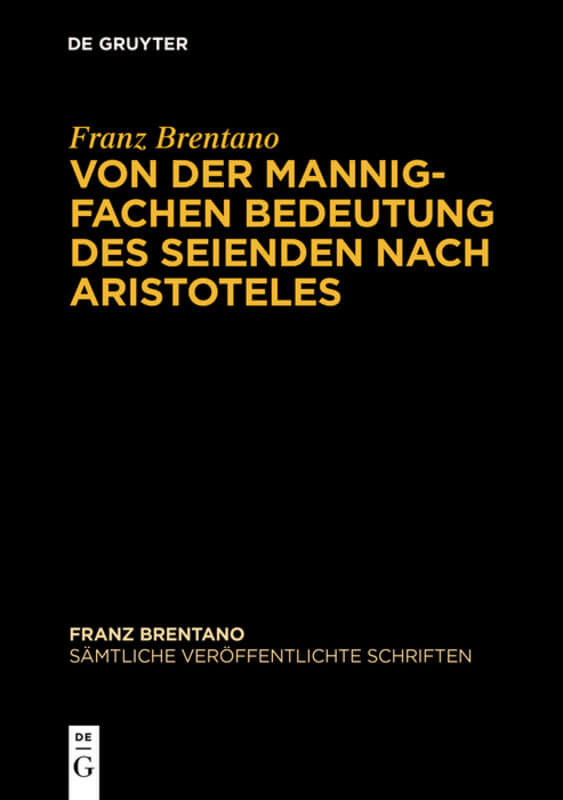On the Manifold Meanings of Being in Aristotle – Band 4
The notion of contradiction is of fundamental importance in several fields. It is a central topic in the history of ancient philosophy: the very beginning of philosophy in history seems to be closely connected to the discovery of contradictions in the Greek language. It is of crucial importance in metaphysics: Aristotle’s inquiry into the nature of being is inspired by the need of avoiding (and diagnosing) the occurrence of contradictions. It is evidently, in many senses, one of the basic concerns of logic. The problem of contradiction is also the problem of disagreement, so the theme is also the core of any political reflection about democratic confrontation, relativism and the role of the concept of truth in political practice. A complete theory about the problematic and heuristic relevance of contradictions in any field has been typically given by the authors of German Idealism, and specifically by the tradition of Hegelianism, so the issue is crucial for the history of philosophy after Kant. The problem of the existence, uses, and nature of contradictions is finally at the core of many contemporary discussions in philosophy: discussions about paradoxes, and the plausibility of paraconsistent logics, but also about the status of human subjects, as located in social and political contexts, and about the destiny of Marxism. The papers collected in this volume present some of the most recent results of the work about contradictions in philosophical logic; examine the history of contradiction in crucial phases of philosophical thought (in ancient philosophy and in German philosophy after Kant); consider the relevance of contradictions for political and philosophical actuality. From this consideration, and despite the differences between approaches and styles, a common question emerges, crossing all the papers. It is the question of the irreducibility, reality and productive force of (some) contradictions.


